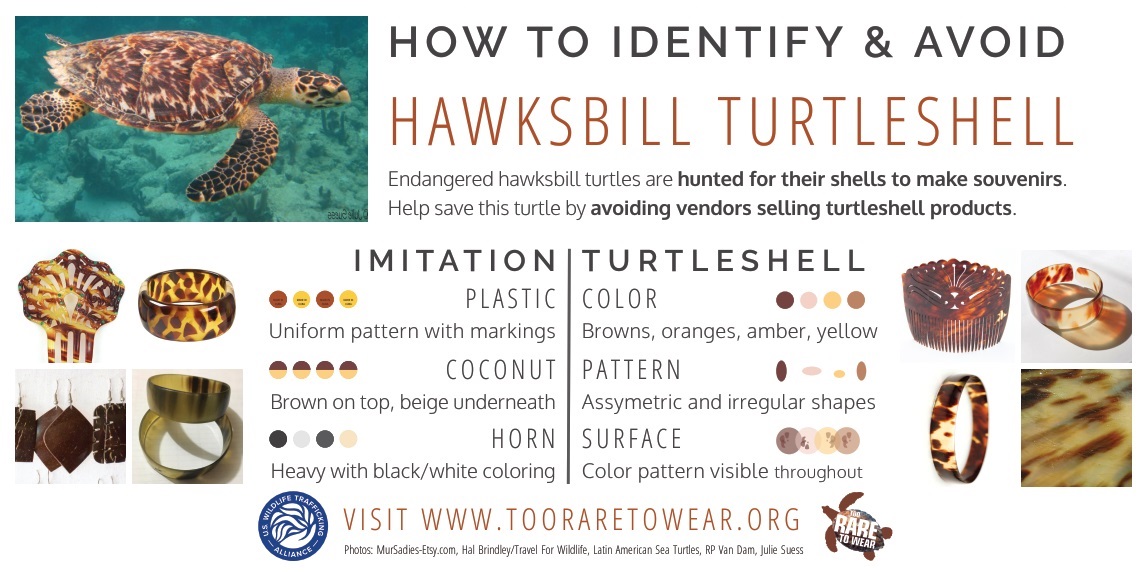Hawksbill sea turtles play a vital role in the world’s oceans. They help maintain the health of coral reefs by removing prey such as sponges from the reef’s surface, allowing better access for reef fish to feed. Unfortunately, the hawksbill sea turtles are now classified as critically endangered and face a unique threat. Hawksbill are usually the main sea turtle species hunted for their shells, also known as “tortoiseshell”, which have been used to make jewelry and souvenirs in many tropical countries.
As a traveler, it is important for us to know how to identify and avoid purchasing souvenirs that are made from these endangered shells. Selling turtle shell has been banned since the 1990s, and buying turtle shell products is illegal in most countries. Turtle shell products continue to be sold illegally in many Central American and Southeast Asian countries, and this has posed a threat to the population of this endangered species.
Click through the slideshow below to read some tips, sourced from fellow US Wildlife Trafficking Alliance contributor, Too Rare to Wear, to help you identify and avoid hawksbill turtle shell souvenirs:
1. Ask if the product is made from sea turtle shells. This is the first and most important thing that should be done when purchasing a product with a tortoise shell pattern.

Sea turtle shell bracelets for sale in Mirador Catarina, Nicaragua, ©Hal Brindley
2. Observe the color of the product. Products made from sea turtle shell usually appear a dark brown color, but if you hold them up to the light, you’ll see that the light-colored areas are transparent orange or amber color.

Sea turtle shell bracelet produced by local artisan in Managaua, Nicaragua. © Hal Brindley
3. Feel the product. Turtle shell products are thin and flexible and can bend quite far before breaking.

Sea turtle shell bracelets for sale Managua International Airport, Nicaragua. © Hal Brindley
4. When in doubt, purchase something that you can be sure is not turtle shell. This is the safest way to make sure that you are not buying an illegal product.
By Alex Muir, WWF


























